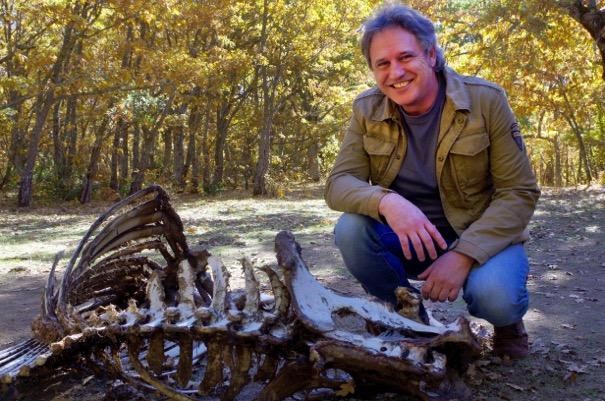30/03/2023
Jordi Rosell granted an Advanced Grant, the highest distinction of the European Research Council for research projects
The URV professor and IPHES researcher will lead the SCAVENGERS project, in which he will investigate the interaction between carnivores and humans in prehistoric habitats.

The URV professor and IPHES researcher will lead the SCAVENGERS project, in which he will investigate the interaction between carnivores and humans in prehistoric habitats.
The SCAVENGERS project, led by Jordi Rosell, lecturer at the Universitat Rovira i Virgili (URV) and researcher at the Catalan Institute of Human Palaeoecology and Social Evolution (IPHES-CERCA), has been distinguished by the European Research Council (ERC) with an Advanced Grant, the highest distinction granted by this European body. Rosell proposes a novel system based on neo-taphonomy to address the interpretative problems generated by the interaction between humans and carnivores at archaeological sites. Although in an initial stage, this new system of analysis is proposed for Middle Palaeolithic sites, the objective is to apply it to archaeological sites in a much wider chronological range.
The interaction of carnivores as secondary consumers in abandoned camps is a common phenomenon that has been widely reported recently. All the observations suggest that the possible alterations caused by these animals can change the original composition and spatial location of the artefacts and faunal remains within an archaeological assemblage. Many archaeological studies do not take into account these possible incidents in the final characteristics of the preserved ensembles, which can lead to subsequent misinterpretations.
To solve this problem and to fully understand the role that carnivores played in prehistoric habitation sites, the SCAVENGERS project has set up a series of experimental programmes, based on the concept of neo-taphonomy, with carnivores in the wild . The project plans to reproduce a series of prehistoric habitation sites, based on state-of-the-art archaeological knowledge, and expose them to different types of wild carnivorous species: hyenas, lions, bears, wolves, and other smaller animals. These experimental reproductions will be monitored and the data obtained will be analysed with artificial intelligence and applied to various archaeological ensembles of the Middle Palaeolithic.
The main objective is to generate a considerable amount of cross-sectional data that can be applied to other chronological periods and geographical areas, thus extending the limits of traditional archaeological methods,so that more precise inferences can be made about human behaviour in the past. The results of this project will contribute to the development of a new paradigm and will change some of the basic ideas about prehistory that have been held until now.
In addition, the information and experience accumulated will provide data and information that can be very valuable for other areas of knowledge, such as nature studies, animal behaviour and the management of natural resources and parks.
The European Research Council (ERC) has announced 218 Advanced Grants for 2022 with a contribution of EUR 544 million to support researchers with international recognition, who do leading research in Europe and have at least 10 years of experience at the highest level. Projects with a strong multidisciplinary component and innovative applications in emerging fields are likely to be awarded the grants.
